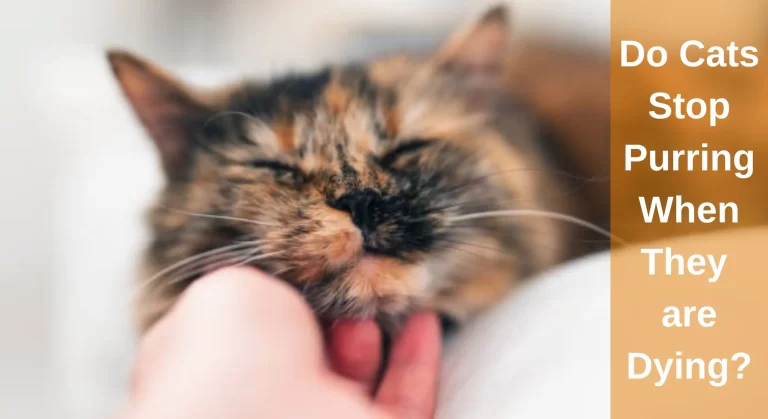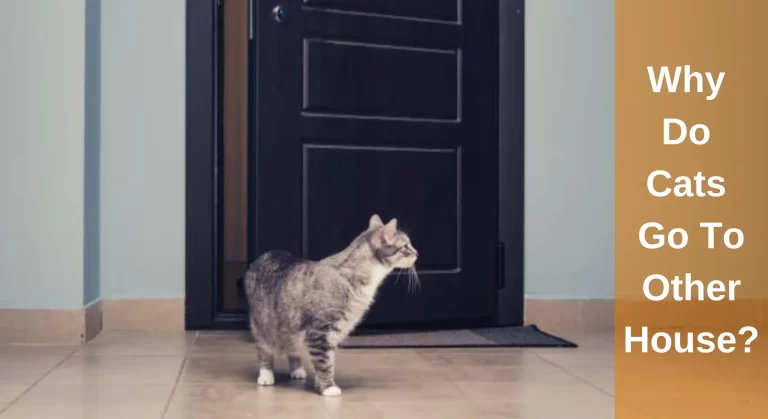Do Cats Remember Where They Live? [Answered]
Cats are unique pets because of their personalities and mannerisms. Felines can indicate happiness or annoyance with a flip of their tail. But most cat owners might not tell whether it’s a happy or angry sign. Cats have long-lasting memories, but do cats remember where they live?
Felines can figure out their way home thanks to their enhanced ability to smell and other abilities. Cats identify their home by spreading pheromone messages across their region—on trees, fencing, etc. They can use that to find their home if they smell something known.
Being a cat owner, you may want to know more interesting facts about your cat’s memories. So, this article will help you as here you’ll find all the answers to your queries regarding your cat’s memory. So, let’s find the answers:

How Do Cats Roam?
Felines are territorial animals in all environments, whether they live in urban or the countryside. Cats define their region in a very discrete manner. Felines disperse their pheromones by their body and face on your hands, legs, or other furnishings.
For a curious cat, there’s no border; therefore, they consider entire streets and neighbourhoods as their domain. Cats often stay inside the boundaries of their domain and act violently against other cats who enter it.
However, domestic cats only travel a limited area when accidentally let outside or if they’re left unattended. Most of the time, these cats stay within a mile of their homes. A cat can only go to the street end when it resides in a neighbourhood where there are many other cats.
What Do Cats Do When They are Roaming?
Cats seek food, which may include tiny lizards, mice, scorpions, and various sorts of insects. Some cats are frequently observed consuming food from the garbage or a freebie food supplied by a kind neighbour.

You shouldn’t be concerned about your cat’s food when they only spend a night away from you occasionally. Most likely, they had taken the necessary precautions to stay alive.
There are many other reasons for cats to roam:
- Find a new place to live.
- Find food to eat
- Find the hunt for food.
- To find a safe place to hide from other cats
- Better environment for living
- If feel hungry (find something to eat)
- Restlessness
- Search for new stimuli
- Lost cats roaming here and there in search of a new home.
Do Cats Come Back Home If They Run Away?
Cats who are allowed to roam both inside and outside will soon learn the boundaries of their surroundings and often won’t go too far if they ever escape. But sadly, those cats who’ve never been outside may not come back as they’re unfamiliar with the outside environment, and they may get lost after going out.

Cats who’re allowed to roam outside will spread their pheromones on nearby places, objects, and neighbours as well. So, if they ever lose, they utilize their smelling sense to detect these pheromones that will guide them on the way home.
Moreover, as cats have a high amount of iron in their ears, so due to the magnetic waves that exist in the earth naturally will also help them to determine direction.
Find Out: Why Do Cats Run Away From Home?
How Long Do Cats Remember Where They Live? Cat’s Memory Explained
Cats have both short-term and long-term memory. Long-term memory is used to store information for a longer time. While short-term memory is used to remember things for a shorter time.
Although the length of time cats retains their home is unknown, studying how their recollections function may let you make an accurate approximation. The explanation of a cat’s memory is as follows:

1. Short-term Memory
This memory is used on a regular basis by cats and is also named working memory. It contributes to a cat’s routine conversations and alertness. Cats utilize associative memory and form associations with sounds, scents, and visual cues. This allows it to assess if a certain activity is the one it remembers well.
These memories, which your cat may keep for up to 16 hours and control your cat’s continued behaviour. It’s a huge time period for cats to retain only those memories that are helpful but don’t store the irrelevant ones.
2. Long-term Memory
Researchers have discovered that cats’ long-term memory is around 200 times stronger compared to that of dogs.
Although cats are often quite picky about the stuff they preserve for such a long time, once they memorize anything, they’ll retain it for almost 10 years. However, long-term memory stuff isn’t readily available like the short-term; still, cats can remember it when necessary.
In this memory, cats retain strong memories of the individuals who provided for and cared for them. Moreover, your cat also remembers those things that irritate it. There are two further categories of a cat’s long-term memory:
- Implicit memory stores motions, grooming routines, and hunting prey.
- Explicit memories store the identity of its caretaker, tense trips to the veterinarian, and residence.
However, cats may experience cat cognitive deficits that affect about 50% of feline between the ages of 11-15 and 80% at the age of 16-20.
Moreover, older cats experience memory loss due to the loss of brain cells within their brain. So, it’s essential to feed your cat diets high in vitamins and omega-3 fats to lower its probability of brain impairment.
Can Cats Find Their Way Back to a New Home?
If your cat is missing just after you move into your new home, then she may not settle well in the new place. Some felines will recognize their new residence in just a few days, while others need a long time.

However, if your cat likes the new location, he’ll “memorize” it and spread its pheromones in the surroundings so that he’ll use it to get back to his new home. But, if he still misses his old place, he’ll return to it, even if it’s far away from your new home. It’s been proved that 30% of felines may attempt to go back to where they came from.
So, if your cat is missing from your new home, ask your neighbours or old residence owners to check their place.
Can Cats Find Their Way Home Years Later?
Yes, cats can find their way back home after hours, days, weeks, or years after being lost or wandering off. They don’t go far away from home and walk only a few miles away from their residence even after being lost for 2 years.

So, don’t give up on finding your missing cat. Keep visiting rescue groups and keeping in touch with your former neighbours. You’ll find your feline even after years if you’re incredibly fortunate.
Do Cats Remember Places They Used to Live?
Cats frequently recall their home, particularly if they never stay far from it or if they have a strong affection for it. Depending on the cat’s breed and degree of contact with the outside environment, it may or may not go home.

Indoor cats with little exposure to the outside world may become confused or lost if they run away because of unfamiliar or new home instincts. On the other hand, outdoor cats typically have little trouble returning home.
Do Cats Miss Their Owners?
According to experts, felines miss their guardians and show various signs that indicate it. Sometimes, when they miss their caretakers, they release their tension by urinating out of their litter box.

Some owners think that their cats aren’t using their litter box properly to show their anger, but in reality, they’re trying to show their misery and sadness.
Your feline may miss you a lot if it develops an attachment to you. A cat forms a link with its caretaker through imprinting. If your cat does this to you, it’ll definitely miss you more when you aren’t at home for a long time.
Also Read: Do Cats Get More Affectionate With Age?
Frequently Asked Questions
Can cats remember their previous owner?
Cats imprint on those people whom they love the most and form a special bond with them. So, if your cat imprints on you, she’ll never forget you and most probably try to return back to you.
Do Cats Run Away to Die?
Cats never run away from their home to die. A cat will typically seek out a quiet, secure area when they’re a little ill. Moreover, unwell cats stay close to home. Rather, they go for the cleanest, quiet location they’ll find close. However, as they’re weak, they may get into an incident on the road and die, but they don’t actually mean to do it.
Do cats remember their late owners?
Cats will miss their late owners and may remember their memories. But they don’t remember every singular occurrence the way humans do. So, if your cat doesn’t greet you and cuddle you with extra zeal, that doesn’t indicate they won’t miss you!
Do cats miss their late owners when they’re rehomed?
The felines will undoubtedly miss their late owners after being rehomed for some time; if they make a good relationship with them. They’re aware that their guardian is no longer there but also adaptive and recognize that their lives must continue.
Do cats remember other cats?
Yes, cats can recall fellow cats; however, it’s unclear how long they can memorize them. Later, mates trade odours so they can recognize one another if lost.
Do cats remember their old homes?
Cats spread their pheromones in their familiar surroundings so that they can easily recognize their home. They spread their pheromones on everything in your home, like furnishing, fences, neighbours, floors, etc. So, if you’re newly moved to another place that isn’t far away from your previous one and your cats are more affectionate with your old home. Then there are much more chances that they’ll return back to home by smelling those pheromones.
Wrap Up!
Cats typically do recall where they’ve lived. Those cats who’re allowed to roam freely outdoors mark their territories up to 3 acres in size, yet they’ll eventually return to the region where their fundamental necessities are fulfilled. However, indoor cats who haven’t been outside will remain close to their homes because they’re more aware of their environment instead of other streets.
Also, it might be difficult for your cat to forget you and return to you if you give it food, drink, protection, and affection.
Related Posts:
Who is Isabella?
My name is Isabella, and I am a dedicated and knowledgeable cat enthusiast. With years of experience caring for cats and a deep love for felines, I made a mission to help other cat lovers navigate the challenges of cat ownership.






